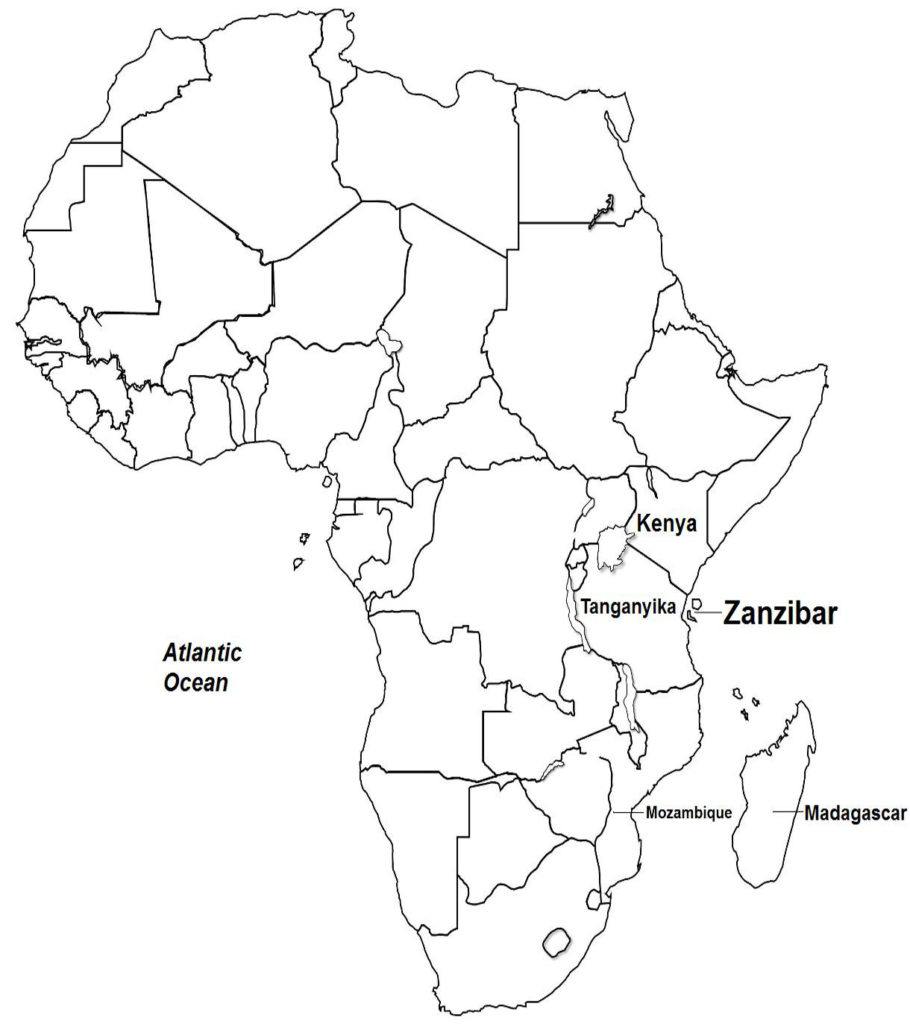On January 12, 1964, Zanzibar, a country of small islands located just east of the African mainland experienced an armed revolution that overthrew the ruling parliamentary monarchy and established a socialist government. The revolution took place just over a month after December 10, 1963, when Britain ended its protectorate and granted Zanzibar full independence under Zanzibari Sultan Jamshid bin Abdullah. Sultan Abdullah’s family had ruled pre-British Zanzibar through a long line of dynastic succession dating back to 1698.

(Taken from Zanzibar Revolution – Wars of the 20th Century – Volume 3)
Background In July 1963, legislative elections in Zanzibar had given the Arab Zanzibari political coalition, led by the Zanzibar Nationalist Party (ZNP), a majority in parliament. The main opposition party, the black African-dominated Afro-Shirazi Party (ASP) had won fewer seats in the elections, despite garnering 54% of the popular vote. The ASP had accused the government of carrying out electoral fraud to ensure the ZNP’s victory. As a result, violence broke out that caused a number of civilian deaths.
Zanzibari society was religiously homogenous, with 99% of the population belonging to the Islamic faith. The country had three major ethnic groups: black Africans and mixed African-Persians (called Shirazi), both groups numbering 230,000 persons and comprising 76% of the population; ethnic Arabs at 50,000 or 17% of the population, and ethnic Indians at 20,000 or 6% of the population.
Traditionally, Zanzibar was stratified into three economic groups: ethnic Arabs, who owned vast tracts of agricultural lands; ethnic Indians, who dominated the business sector as traders and merchants; and the indigenous Africans, who comprised the great majority of the laborers and farm workers. However, many exceptions had developed over time, e.g. the majority of new Arab immigrants to Zanzibar were poor, and some black Zanzibaris became wealthy landowners.
A few weeks after Zanzibar gained its independence, rumors arose that the outlawed communist Umma Party was planning to overthrow the government and was secretly bringing in weapons to the island. The Zanzibari sultan asked Britain for military assistance, but the British government, which had already withdrawn British troops from Zanzibar, denied the request. Zanzibar’s defense thus was left to the island’s small police force.
Revolution Early in the morning of January 12, 1964, in Zanzibar’s main island of Unguja (also more commonly called Zanzibar, Map 20), hundreds of fanatical fighters belonging to the Afro-Shirazi Youth led by John Okello, attacked police stations and seized armories outside Zanzibar’s capital of Stone Town. Now possessing firearms, the rebels proceeded to Stone Town, where they overwhelmed more police units and took control of government buildings, public utilities, and the city’s radio station. Within a few hours, the rebellion had gained the support of the vast majority of the general population. Scores of local civilians took up arms and joined the rebels in defeating the remaining government forces. Just nine hours after the uprising began, the rebels had gained full control of the capital. Zanzibar’s government collapsed, and the sultan and his Cabinet fled into exile abroad.
Okello called on the ASP’s leader, Abeid Karume, to form a new government. The ASP and the Umma Party formed a ruling revolutionary council that was led by Karume, who also became Zanzibar’s first president. Karume’s government renamed the country the “People’s Republic of Zanzibar and Pemba”, and abolished the Zanzibar Sultanate and banned the deposed Sultan Abdullah from returning. Free politics ceased as the state-run ASP became the sole legal party that was allowed to operate.
A complete overhaul of Zanzibari society took place with the government’s implementation of sweeping social and economic reforms. Lands owned by ethnic Arabs were seized as were businesses owned by ethnic Indians. The seized assets were handed out to black Zanzibaris. Virtually overnight, Arab and Indian domination of Zanzibari society vanished completely.
After the rebels had seized Stone Town’s radio station at the height of the revolution, Okello went on the air and broadcast inflammatory speeches urging the civilian population to carry out violence. Okello claimed to hold the military rank of a “Field Marshall” and greatly exaggerated his feats in the revolution as they were transpiring.
As a consequence of Okello’s broadcasts, in the days that followed, the Zanzibari countryside became scenes of violence as armed bands descended on Arab and Indian settlements and killed whole families, destroyed houses, and seized lands and properties. Dramatic scenes of this event were captured in the documentary Africa Addio, produced by an Italian film crew that was coincidentally working in Zanzibar at that time. Filmed from an aircraft in flight, the documentary shows scenes of many dead people on the ground, piled up dead bodies at the back of dump trucks traveling down the road, long lines of people being led away by armed guards, and people attempting to flee the island aboard packed dinghies. The human death toll from the violence has not been determined exactly, and is given by various sources as from a few thousands to several thousands.
